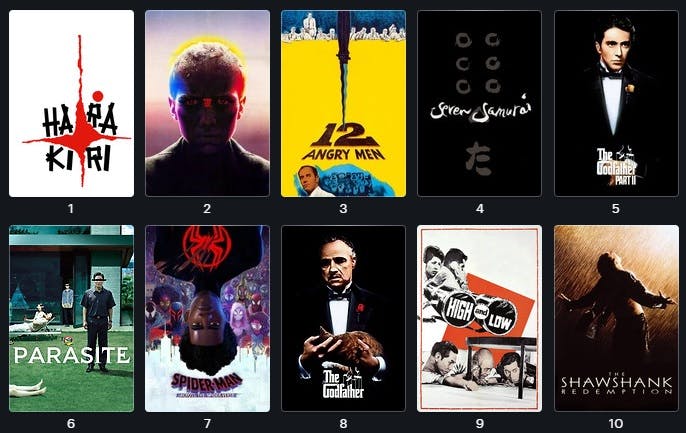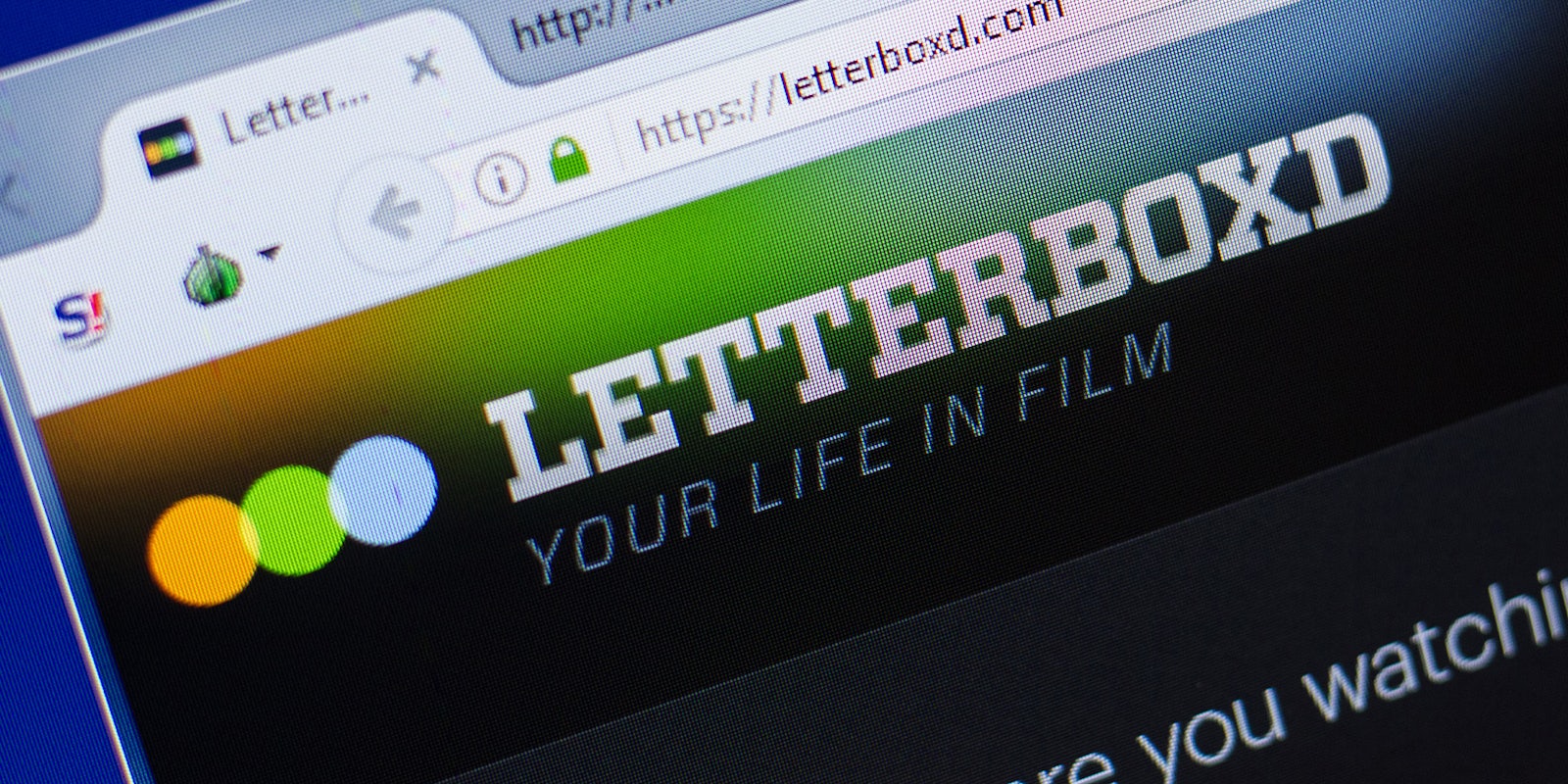Beloved among film buffs, Letterboxd‘s user-generated movie rankings just received a controversial update.
Every film’s Letterboxd profile includes a score out of five, calculated from a weighted average of user ratings. So a beloved classic like The Godfather has a score of 4.6 stars, while Morbius has 1.6. In turn, these scores play into the site’s Top 250 list, which changed a lot when Letterboxd tweaked the math this week.
Describing the new method as a “fairer” way to calculate weighted scores, Letterboxd explained that the old system “could be swayed (up or down) by a concerted effort or campaign, or because a film was beloved in one region, or because superfans were attracted to it first.”
This is why the site’s charts were often clogged up by pop music documentaries (upvoted by stans) or recent hits like Spider-Man: Across the Spider-Verse, which briefly became the highest-rated movie on the site.
Under the new system, Spider-Verse drops to #7 on the top 250 narrative feature films, with the top three slots filled by Japanese period drama Harakiri (1962), harrowing Soviet anti-war film Come and See (1985), and American courtroom drama 12 Angry Men (1957).

But since movie ratings are subjective and Letterboxd users can’t even agree on what the top 250 is meant to signify, there’s no way for the site’s algorithm to keep everyone happy.
One criticism of the new rating system is that while it cuts down on recency bias and fandom ballot-stuffing, the highest-rated movies are now closer to film bro stereotypes. The top 250 list is more similar to what you’ll find on IMDb charts or easily-searchable “best movies of all time” articles, downplaying the Letterboxd user base’s quirkier choices.
More troublingly, the new system faces accusations of xenophobic bias, as various films from the global south fell in the rankings.
For example, the Brazilian comedy A Dog’s Will (2000) has a ton of five-star ratings but was often accused of having an inflated score due to bots or fan campaigns. Its new weighted score is 3.9, and it no longer appears on the top 250 list—a ranking that many users used to find confusing because A Dog’s Will is not well-known outside of South America.
However, this new weighted score is also controversial, overlapping with speculation that Letterboxd has devalued the ratings for movies from South America and South Asia.
If Letterboxd penalizes films that are only popular in their home countries, it runs into two problems.
First, some countries have better film distribution than others. American blockbusters are readily available around the world, but an Indonesian indie drama might only screen at a few international film festivals. So for entirely practical reasons, most of that film’s Letterboxd ratings would come from Indonesian users.
Secondly, cultural differences inevitably play into people’s appreciation for a work of art, and there’s a long history of film criticism being shaped by xenophobic bias.
Letterboxd’s user base skews American, young, and male, and those demographics are relevant. So this controversy is essentially the prestige version of how IMDb’s male-dominated user base shapes the site’s rankings, and how Rotten Tomatoes has struggled to deal with reactionary fan campaigns.



